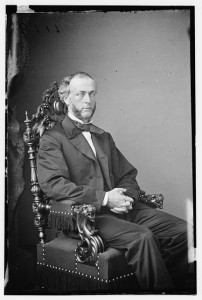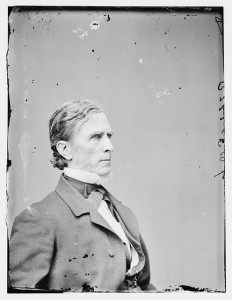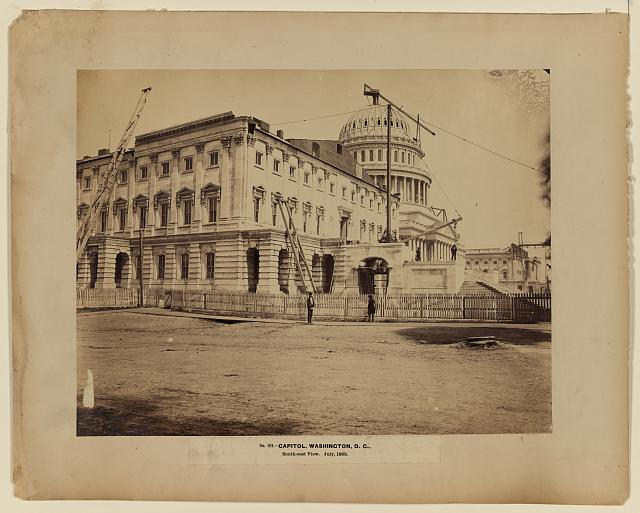Apparently the strongly pro-Democrat newspaper in Seneca County wasn’t exaggerating too much when it complained that troops and their families were suffering because the federal government was way behind in paying its soldiers.
From The New-York Times January 13, 1863:
NEWS FROM WASHINGTON,; THE FINANCES OF THE GOVERNMENT. A Bill for the Temporary Relief of the Treasury Passed in the Senate. The Proposed Consolidation of Regiments in the Field.The Bill for Raising 150,000 Negro Soldiers.Soldiers’ Arrears to be Paid atOnce. THE GOVERNMENT FINANCES. TEMPORARY RELIEF TO THE TREASURY. PAYING THE SOLDIERS. CONFISCATED LANDS FOR THE SOLDIERS. CONSOLIDATING THE REGIMENTS. THS PROPOSED ENLISTMENT OF NEGRO TROOPS. THE EMANCIPATION POLICY. THE MEDICAL DEPARTMENT. NEW RAILROAD TO NEW-YORK. SENATOR SAULSBURY. THE PAPER QUESTION. GEN. HUNTER. COMMISSIONERS OF EMIGRATION. THE M’DOWELL CASE. CONTRACTS FOR ENVELOPES. E. N. ORDNANCE DEPOT IN BALTIMORE. EMANICPATION IN MARYLAND. RETURNED.
OUR SPECIAL WASHINGTON DISPATCHES.
WASHINGTON, Monday, Jan. 12.
It is quite clear, from Secretary CHASE’S known views and known frimness, that he does not yield to the determination of the Committee of Ways and Means in regard to his me[a]sures, but will make an effort to secure their adoption by Congress in full or in a modified form.
The Senate to-day passed Secretary CHASE’s bill for temporary relief to the Treasury, in place of the joint resolution of the House, intended to provide for the prompt payment of troops in the field.
The following resolution, adopted in the House to-day, on motion of Hon. FREDERICK A. CONKLING, indicates that there is in that body a returning consciousness of the immense wrong being perpetrated on the gallant soldiers of the Union:
Whereas, No creditor of the Government is more meritorious than the Union soldier; therefore,
Resolved, That no more money shall be paid to any civil officer or officers of the Government until all arrears due to soldiers in the field are paid.
The House to-day adopted the resolution introduced by Mr. ALDRICH, of Minnesota, instructing the Committee on Military Affairs to inquire in the expediency of bestowing on each soldier one hundred and sixty acres of confiscated land. …
From the Richmond Daily Dispatch January 14, 1863:
The back pay of the Army and navy.
Senator Fessenden, from the Committee on Finance; reported on the 9th inst. a bill authorizing the Secretary of the Treasury to borrow, on the credit of the Government, two hundred millions of dollars to pay arrearages due the army and navy. For one hundred millions he may issue coupons or registered bonds, hearing an interest not exceeding six per cent., payable at the pleasure of the Government any time after ten years.
For fifty millions of said sum he may issue United States notes without interest; for the remaining fifty millions he may issue Treasury notes payable two years after date, hearing four per cent, per annum; which notes shall be receivable for loans and all public dues, except customs. It also provides for the issuing of postal fractional notes, under the direction of the Secretary.
Frederick Augustus Conkling “Conkling organized the 84th New York Infantry in June 1861 and became its colonel. He initially served throughout the Shenandoah Valley Campaign.” He served as a Republican member of the House of Representatives for one term; he failed to win re-election in the 1862 midterms in which the Democrat party made some gains in New York State.
William Pitt Fessenden was strongly anti-slavery and helped develop the Republican party in Maine. He began serving in the U.S. Senate in 1854:
By the secession of the Southern senators the Republicans acquired control of the senate, and placed Fessenden at the head of the finance committee. During the Civil War, he was the most conspicuous senator in sustaining the national credit. He opposed the Legal Tender Act as unnecessary and unjust. As chairman of the finance committee, Fessenden prepared and carried through the senate all measures relating to revenue, taxation, and appropriations, and, as declared by Charles Sumner, was “in the financial field all that our best generals were in arms.”



